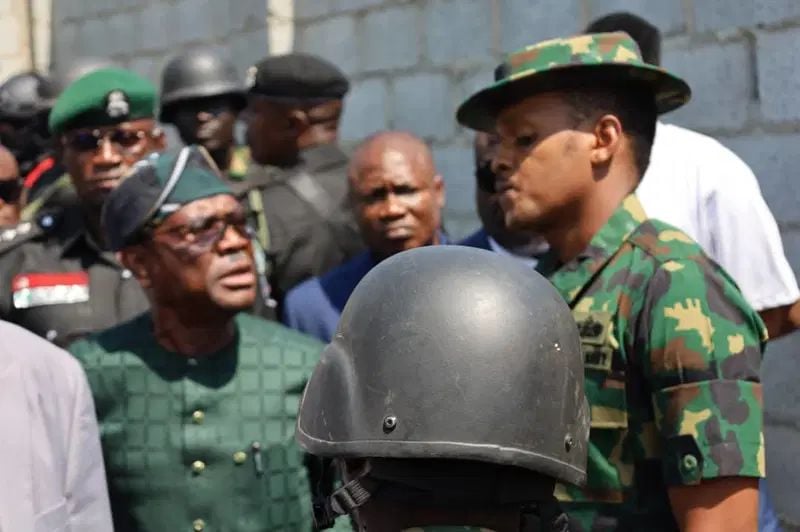<!doctype html>
Wike vs Military Personnel: What Really Happened in Abuja Land Dispute

A heated confrontation recently broke out between Nyesom Wike, Minister of the Federal Capital Territory (FCT), and uniformed military personnel over a land dispute in the Gaduwa area of Abuja. The viral footage and ensuing reactions have reignited debate about the boundary between civil authority and military involvement in Nigeria.
What happened
Minister Wike led a Federal Capital Territory Administration (FCTA) team to enforce development control on a disputed plot in Gaduwa. According to multiple reports, the team was reportedly blocked by armed military officers who said they were acting on orders to protect the property.
Wike demanded to see land approval documents; when none were presented he accused the officers of intimidating civil authorities. A widely shared video shows Wike in a heated exchange with a naval officer, using strong language to challenge the obstruction.

The military’s side
The officers reportedly stated they were acting under orders linked to a retired Chief of Naval Staff and were on site to secure the property. Supporters of the military say the deployment was intended for security; critics counter that using uniformed personnel to guard private land blurs constitutional roles.
Public reactions
The clash produced mixed national reactions:
- Critics of Wike — Senior retired officers and military veterans condemned his public language and demanded an apology, saying the incident undermined military discipline and national honour.
- Supporters of Wike — Many argued Wike was defending civil regulatory authority, especially since no valid land documents were shown; they warned against the use of military force in private land matters.
Key issues at stake
- Civil–military relations — Where should the civilian oversight line be drawn and respected?
- Rule of law — Can military personnel be legitimately deployed in disputed private property matters?
- Institutional respect — How should public officials and the military handle disputes without public spectacle?
- Public accountability — Both sides must clarify authority and follow due process to preserve institutional integrity.
Wike’s statement
“I will not be intimidated by anyone. If you have land documents, show them. You cannot use military power to stop FCTA from doing its job.”
Wike defended his actions as necessary to uphold development control and order in the FCT while challenging the legality of the military’s presence at the disputed site.
Analysis
The incident highlights an ongoing governance challenge: confusion about roles between civil institutions and the Armed Forces. While Wike’s legal concerns about land enforcement appear valid, his confrontational delivery escalated the incident in the public eye. Conversely, the presence of armed personnel for what appears to be a private land matter raises concerns about potential misuse of military influence.
A constructive path forward is procedural: Wike should document the encounter and pursue formal administrative and legal channels; the military should state the authority and lawful basis for deployment in civil property matters.
Conclusion
The Wike–military face-off is a reminder that power without clear protocol can undermine institutional trust. Upholding the rule of law requires mutual respect and a return to due process — not public confrontation.

Leave a Reply